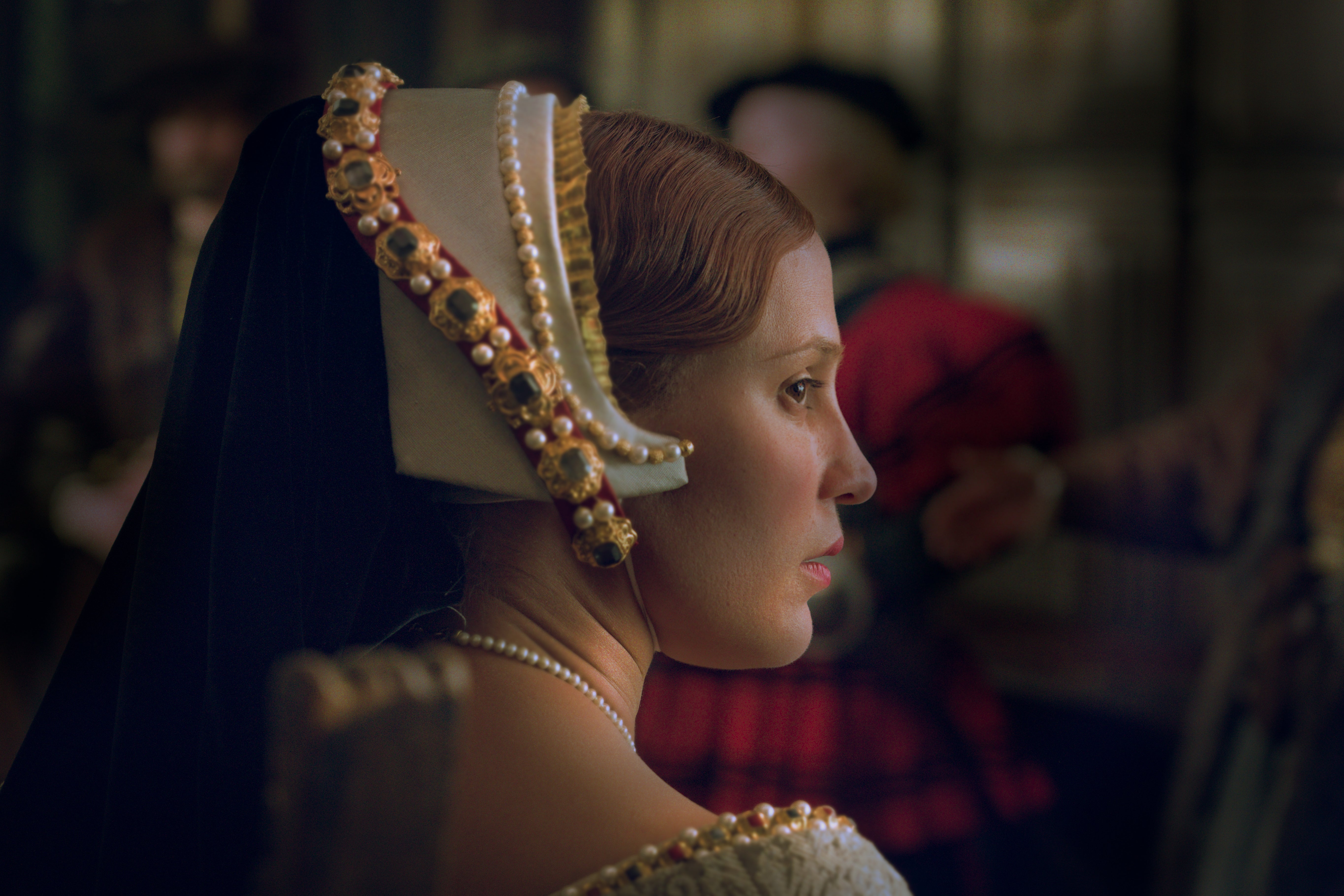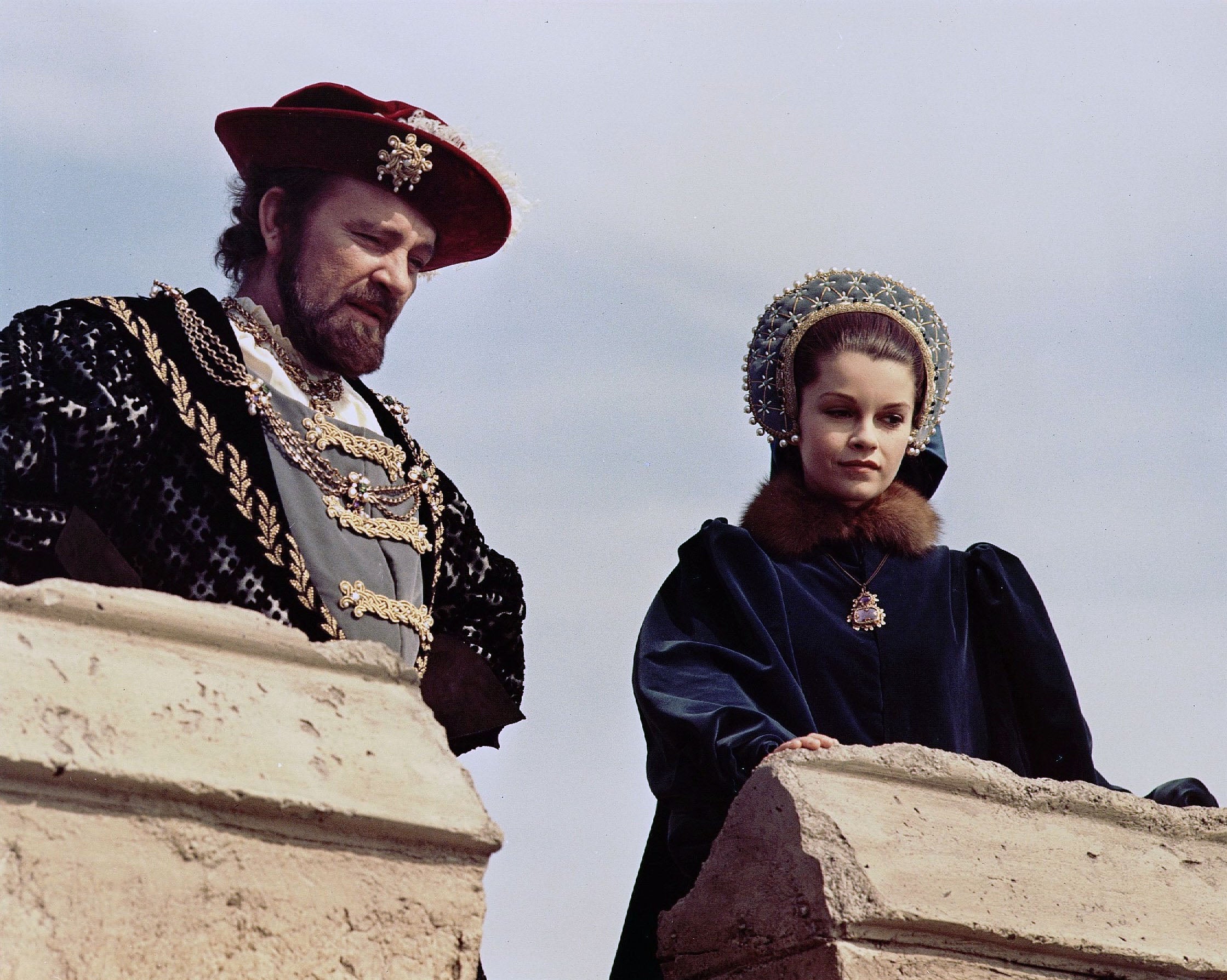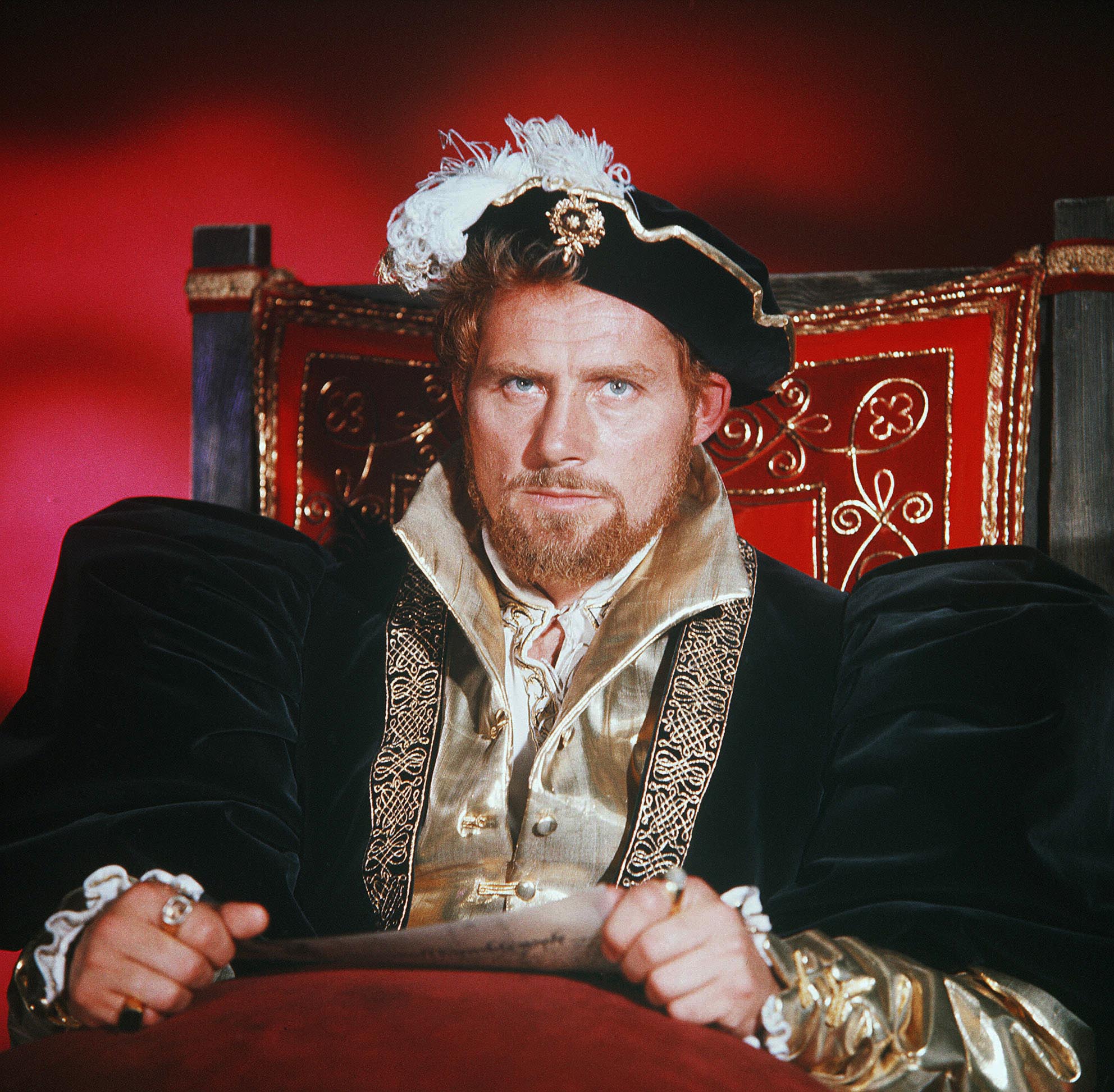Why Jude Law’s Henry VIII is a Tudor king for the #MeToo era
As the actor’s performance in ‘Firebrand’ has drawn plaudits at Cannes, Geoffrey Macnab looks at how Henry VIII has been represented in films

Jude Law’s enormous bottom was the talk of the Cannes Crosiette last weekend. Following the premiere of Firebrand, Karim Aïnouz’s new costume drama in which Law plays Henry VIII opposite Alicia Vikander as the Tudor monarch’s sixth and last wife Katherine Parr, critics expressed their astonishment at the voluminous size of Law’s rump.
Reviews have carried reference to the “ham hock prosthetics”, which must have been used to turn the actor’s backside – seen fleetingly during one of the King’s animalistic trysts with the unfortunate Katherine – into the equivalent of the “giant, shaved arse of a sheep”, as The Guardian called it.
Not since Philip Seymour Hoffman’s posterior was similarly exposed in the sex scene which opens Sidney Lumet’s Before the Devil Knows You’re Dead (2007) has an A-list male actor looked quite so grotesque. Lumet’s movie was a contemporary crime drama set in New York in which Seymour Hoffman was playing a crooked financier. It was a long way removed from the court of Henry VIII, but the two movies have more in common than you imagine. Both are about family betrayal and show masculinity at its basest.
Henry VIII has been portrayed on screen many times, by a very wide range of actors. Robert Shaw, Ray Winstone, Keith Michell, Emil Jannings, Richard Burton, Sid James and Damian Lewis are among those who’ve played him. Almost every movie, including Firebrand, draws on the 1537 painting of Henry VIII by Hans Holbein the Younger for visual inspiration. This painting was lost in a fire, but a preparatory drawing of Henry and his father survives. It shows the king as an imposing, broad-shouldered figure, standing with his legs wide apart, very lavishly dressed and looking as if he is the master of everything he surveys.
Each generation reinvents the Tudor king in the light of its own preoccupations. As Peter Kosminsky, the director of TV drama series Wolf Hall (2015), said admiringly of the Hilary Mantel novel on which it was based, “it was a blatant piece of revisionist history”. Mantel twisted the events in Henry’s court for her own political and ideological purposes. Others might have regarded Thomas Cromwell, Henry’s political adviser, as a dark Machiavellian figure, but he is the hero of her story.
Law’s Henry in Firebrand is very much a Tudor king for the #MeToo era. It was little wonder that several reviewers in Cannes picked up on his resemblance to Hollywood’s most notorious current philanderer, the disgraced producer Harvey Weinstein. Law plays him as a predatory figure who evaluates women as if they are livestock. He has a disarming habit of poking his fingers in their mouths to look at their teeth. He is mercurial too. One moment he will be in a rage and the next he will be leading a sing-song with his sycophantic courtiers.
The English actor is being tipped as a possible Oscar contender. There would be a nice symmetry if he did win. It’s 90 years since Charles Laughton picked up his Best Actor Academy Award for playing Henry VIII in Alexander Korda’s The Private Life of Henry VIII (1933).
Laughton’s Henry was a roaring braggart and buffoon, a monarch with gargantuan appetites who behaved like an overgrown infant. In his 1914 essay “On Narcissism”, Sigmund Freud used the phrase “His Majesty the Baby” to describe how a young child is placed by its parents at “the centre and heart of creation”. The phrase applies perfectly to Laughton’s king. The actor spoke of portraying him “not as a phallus with a crown, but as the morbid introspective fellow he actually was”. He gives an extraordinary performance, one that still stands up today and that his biographer Simon Callow describes as “one of the greatest things he did, and one of the most achieved performances of film history”.
Laughton’s king was charming one moment, lecherous the next. He basked in his own power but was paranoid and neurotic. These are exactly the character traits of Law’s Henry.
Korda was Hungarian. Aïnouz is Brazilian-Algerian. The two filmmakers approach their subject matter in a far more irreverent way than a UK director might have done. Their lead actors are similarly unrestrained and inventive in the way they portray Henry’s moral and physical dissolution.

Firebrand is set toward the end of Henry VIII’s reign, when his gangrenous leg is causing him acute misery and when, prodded by his advisers, he is beginning to suspect Katherine of heresy and infidelity.
“In this period, you could smell Henry three rooms away because his leg was rotting so badly and he hid it with rose oil and so I thought it would have a great impact if I smelled awful,” Law explained about his Method-style approach to playing Henry. He doused himself with a scent that combined the sweaty, miasmatic aromas of “puss, blood and faecal matter”. You can only pity the long-suffering Swedish star Vikander who had to put up with him rolling on top of her.
Law has been cast as rogues on screen before. He was a very louche, low-rent gangster in 2013 comedy crime drama, Dom Hemingway, and was recently seen as a leering, sneering pantomime villain-like Captain Hook in Disney+ drama, Peter Pan & Wendy (2023). His Henry, though, breaks new ground for an actor more commonly seen playing romantic leads.

Firebrand isn’t really a movie about Henry VIII, even if he does dominate every scene in which he appears. It’s Katherine’s story. He’s there as the ogre. When director Aïnouz was preparing to make the film, he rewatched his favourite old horror films among them Stanley Kubrick’s The Shining (1980) in which Shelley Duvall’s character is terrorised by her deranged husband, played by Jack Nicholson. Law’s Henry may not come after Katherine with an axe but there are shocking moments of domestic violence within the film. As a family drama, Firebrand is also very twisted. Henry is still surrounded by the children and courtiers of his dead wives. The grief, fear and resentment felt toward the monarch by so many in court is very obvious. The movie uses his bad leg to signal his moral decadence.
At the same time, Law’s Henry has charm and pathos. He is a victim himself, manipulated by political advisers and bishops like Stephen Gardiner (Simon Russell-Beale) and Edward Seymour (Eddie Marsan), and desperate to secure his succession.
You can easily understand why actors want to play Henry. In Fred Zinnemann’s A Man for all Seasons (1966), Robert Shaw, according to his biographer John French, was only on screen for 12 minutes – but he still won an Oscar nomination for his dynamic and charismatic turn as the king. In his short time on screen, he still manages to show humour, rage, self-pity and acute paranoia.
When Richard Burton played Henry VIII opposite Genevieve Bujold’s Anne Boleyn in Anne of the Thousand Days (1969), he too was nominated for an Oscar. The New York Times described the Welsh actor as “funny, loutish and sometimes wise” in the role. Burton also caught the character’s romantic obsessiveness. When he is courting Anne, he says desperately, in that rich, mellifluous voice of his, “I am mad for you. I dream of you by night. I long for you by day. I’m not good with any other woman. I think of nothing but you – of you and me playing dog and bitch, of you and me playing horse and mare.” When he tells her, less romantically, that he wants to “fill you up with sons”, he begins to sound as if he is on leave from some deranged Tennessee Williams or Edward Albee psycho-drama.

It’s easy to see why filmmakers continue to be drawn to Henry VIII. The story of the Tudor king offers the chance to make lavish costume epics touching on lust, death, sexual politics and the battle for power.
Some in Cannes were appalled by how fast and loose the Firebrand script by Henrietta and Jessica Ashworth – adapted from the novel The Queen’s Gambit by Elizabeth Fremantle – played with historical fact. Aïnouz countered that he was telling the story of a woman, Katherine Parr, who had been disregarded in Tudor history, and that he wanted to focus on how she “not only managed to survive but also to thrive and conquer” in such a chauvinistic, male-dominated world, “amidst the nightmare of an abusive relationship in decay”.
The director was attempting to pull Katherine out from under the huge shadow cast by the king. The irony is that, in spite of Vikander’s fine performance as the philandering monarch’s final wife, all that everybody has been talking about is Law’s scene-stealing turn as Henry… and his gigantic rear-end.
‘Firebrand’ is screening this week in competition at the Cannes Film Festival
Subscribe to Independent Premium to bookmark this article
Want to bookmark your favourite articles and stories to read or reference later? Start your Independent Premium subscription today.



Join our commenting forum
Join thought-provoking conversations, follow other Independent readers and see their replies
Comments